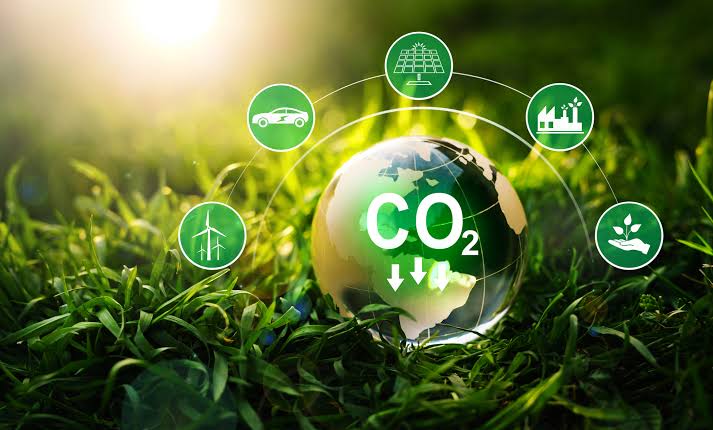Egypt’s Strategy to Decarbonization

Egypt’s petroleum sector has adopted a vision to work on switching to low-carbon sources of energy and decarbonization.
The strategy relies on four main axes, which are: low-carbon natural gas as a transitional fuel, improving energy efficiency, decarbonizing the oil and gas industry, and expanding energy production, and new petrochemical projects that contribute to preserving the environment and producing low-carbon hydrogen and ammonia.
The petroleum sector has succeeded in taking many steps and measures in the field of energy transition and reducing emissions.
The following are the most important achievements in this regard until December 2022:
1- Achieving an annual reduction of about 845,000 tons of carbon dioxide by delivering natural gas to more than 14 million housing units.
2- Achieving an annual reduction of more than 2 million tons of carbon dioxide by converting about 500 thousand cars to run on compressed natural gas since the start of the activity.
3- Egypt’s accession to the global pledge to reduce methane emissions in the gas industry, and the international initiative (NET ZERO WORLD) for technical and technological support in the field of emissions reduction.
4- Within the framework of the Egyptian petroleum sector’s accession to the World Bank’s global initiative to stop the routine burning of flare gases by 2030, 22 projects have been completed to disburse flare gases and exploit them as a fuel alternative to diesel in companies affiliated with the sector, which resulted in an annual reduction of more than one million tons of Carbon Dioxide.
5- The completion of the implementation of 126 projects to improve energy efficiency and reduce electricity consumption in more than 31 companies, and the total emissions that were reduced annually from those projects were estimated at about 470 thousand tons of carbon dioxide.
6- Achieving annual savings in energy consumption of up to 820 million Egyptian pounds through the application of measures to rationalize energy with low investments.
Linking the Egyptian General Petroleum Corporation and holding companies with more than 90 companies in the sector to collect energy consumption data automatically, and data on projects related to energy efficiency measures are currently being linked.
7- Reaching natural rates of growth in energy consumption in the sector as a result of efforts to reform energy subsidies.
Developing the institutional framework for managing energy efficiency activities in the sector, and preparing an energy efficiency strategy in the petroleum sector in cooperation with a specialized global consultant.
8- Five technical reviews of the energy efficiency of the sector’s companies have been completed in cooperation with the European Union and the Japan Organization for International Cooperation “JICA” (Assiut Oil Refining Company, Cairo Petroleum Refining Company, Egyptian Petrochemicals, General Petroleum Corporation, and the Gulf of Suez Petroleum Company “GUPCO”).
9- The establishment of the Center of Excellence for Energy Efficiency in cooperation with the Japan Organization for International Cooperation “JICA”, which targets the energy sectors in Egypt and Africa, where the first three training programs were implemented during October 2022.
10- Implementation of the first campaign to study the measurement of methane emissions in the sector’s companies, in cooperation with the European Bank for Reconstruction and Development.
Starting steps to implement green energy and low-carbon fuel projects after the signing of a joint development agreement between the Norwegian company Enrec and Skatek for a new project for the production of green methanol, which is the first of its kind in Egypt and the Middle East.
11- The Ministry of Petroleum and Mineral Resources participates in preparing a national strategy for green hydrogen with the full support and follow-up of the political leadership and the government.


